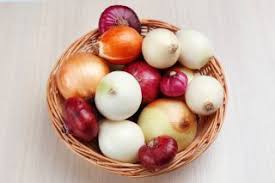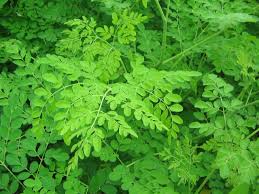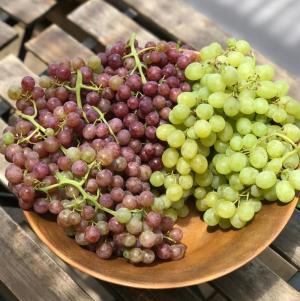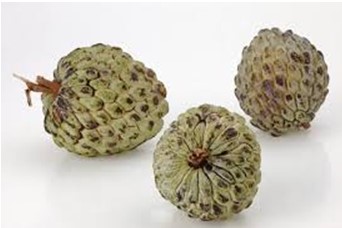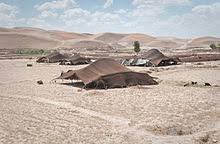I think there are vegetables that we don't really take seriously.
They are not really vegetable in themselves, they are a routine addition to other foods, dishes and salads. We buy them so they are always available, as a frequent ingredient that has no use on its own. They are taken for granted, as "side" vegetables. Like the fries alongside the pita with falafel. Maybe like the rice next to the main course (although of course there are places and there are meals where the rice is the main course). Such is the onion – When was the last time you thought “Mmm… I really want to eat some onions”? Or that you wanted to honor onion as the main ingredient in a recipe. Maybe it gets a few minutes of glory in the plate with the pickles alongside the hummus, before the hummus itself arrives, usually. So then, we'll take a small taste the white flesh in front of us, maybe complain it is too spicy, maybe be surprised how sweet it is – And we will almost completely forget about it when the main course arrives. Today we will pay a little more attention to the onion – And a little more respect.
The daffodils are now blooming in the area, and the Jerusalem area is particularly abundant with them. The onion also belongs to this fragrant family – A "garlic" vegetable, and the translation of its Latin name is "hollow garlic." Different varieties of onion have different colors – White, yellow or purple. The green onion is actually one of the onions mentioned earlier, who grew fresh green leaves. The purple onion is typically slightly sweeter than the white, so it is better suited to dishes that seek to emphasize the "onion" flavor – In a fresh salad, sabiche, or fried-sweet for quiche.
The amount of tears shed by the onion cutter (and those around him) depends not on the variety, but on the composition of the onion cells you hold in your hand: There are two parts within each onion cell, one containing enzymes and the other sulfides. When you cut (or bite) the onion, the cells are injured, the two ingredients mix and cause a chemical reaction that eventually creates a gas that irritates the eyes, create a stinging sensation and tears. I have heard plenty of tips and myths about the best way to reduce the river of tears while cutting onions – place a piece of onion peel behind the ear, chew gum, wash the knife… The only practical advice so far is to use a sharper knife (because it injures fewer cells while cutting) and to wear eye protection (such as goggles, not a face shield…). Someone also suggested to place a lit candle near the cutting surface (perhaps because the gaseous material will combust near the flame?) I had not yet tried this, anyone curious enough is welcome to try and report.
The onion wonderfully demonstrates how much the ecosystem depends on its various factors: the onion responds to light, ie to the number of hours of daylight, and to the temperature. Different varieties will favor different conditions (the European preferences are different than those of the Israeli ones), but in general – the more hours of light while the onion is growing, the more nourishment is transferred from the leaves in which the photosynthesis occurs, to the leaf bases, meaning, the bulb". The shorter the duration of light, the more the onion will invest in its leafy crown. "Short day" varieties need about 10 hours to "bulb", compared to 12-13 hours for the "long day" varieties.
The onion was cultivated somewhere in Asia, some 7,000 years ago. It is mentioned in the Bible when the Israelites long for the culinary affluence they had in Egypt, just before packing and fleeing to the desert (this is called selective memory): "We remember the fish we ate in Egypt at no cost—also the cucumbers, melons, leeks, onions and garlic". Garlic and onion are important components in many peoples' and cultures' kitchens, especially those that do not have available antibiotics, and should (or prefer to) rely on the food they eat to contain ingredients that fight infections and prevent inflammation. Probably because of its availability, ancient doctors found plenty of uses for it: to treat hemorrhoids and diarrhea, to speed up menstruation, improve memory and appetite… The tip I know in terms of using onion is to put it next to the bed of someone who is coughing – it will help clear the airway, especially when it is a "wet" cough.
Have a healthy winter, with delicious and onion-filled salads!
Yours,
Maggie's Garden Team
Forecast:
In the ORGANIC vegetable baskets we expect (draft only):
Cucumber
Tomato
Lettuce
Potato
Carrot
Pepper
Parsley
Swiss Chard
Celery
The Large organic vegetable baskets also include:
Onion
Coriander
Fennel
In the ORGANIC fruit baskets:
Bannana
Orange
Pomelo
The large ORGANIC fruit baskets also include:
Red Pomelo
Clementine
The ORGANIC Green Basket:
Celery
Spinach
A kind of lettuce
Mint
Sprouts
Basil
Kale

